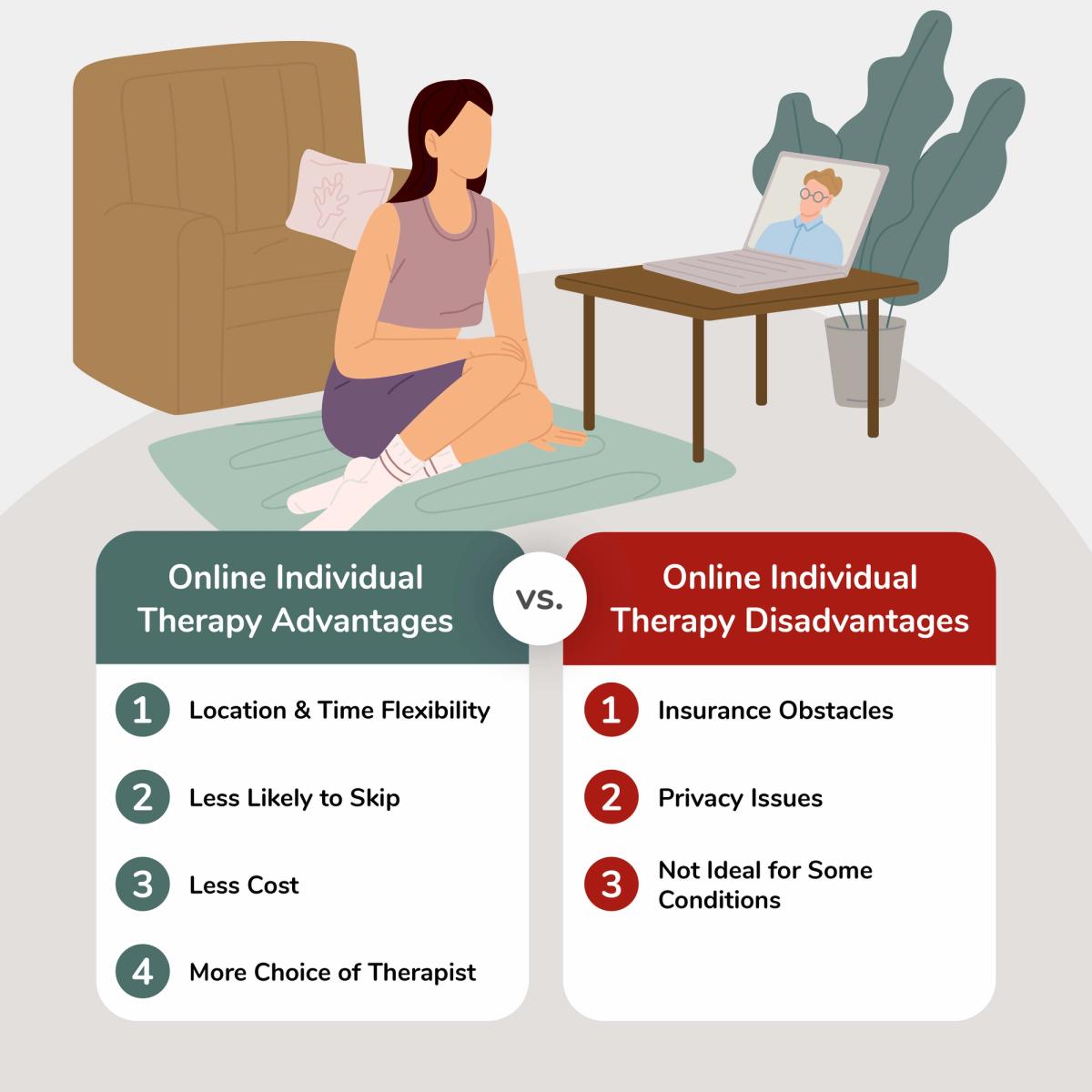Breaking stigma: how Individual Therapy Toronto promotes emotional awareness
Wiki Article
Understanding the Significance of Mental Therapy for Teenage Growth and Health
Mental therapy plays an essential function in the growth and health of teens. It addresses a variety of mental health and wellness problems that can hinder their growth. Through treatment, teenagers can find out crucial coping techniques and boost their psychological knowledge. This process fosters strength, permitting them to far better browse life's difficulties. Lots of still be reluctant to engage in discussions regarding psychological wellness. Discovering the factors behind this reluctance discloses much deeper insights into the teen experience.The Effect of Teenager Mental Wellness on Overall Development
The interaction between teenage psychological health and wellness and general growth is multifaceted and profound. During the vital phase of teenage years, individuals undergo significant physical, psychological, and social changes that form their identification and future. Psychological health plays a crucial function in this procedure, affecting academic performance, relationships, and self-esteem. Favorable mental wellness fosters resilience and versatility, allowing teenagers to browse difficulties properly. Conversely, psychological health problems can hinder cognitive features, interfere with social communications, and prevent psychological policy, causing a cascade of developing problems.Furthermore, the setting in which adolescents grow-- including household characteristics, peer impacts, and social assumptions-- interacts with their psychological health, more complicating their developmental trajectory. Understanding the significance of psychological health in this phase is crucial for advertising healthy and balanced development and guaranteeing that teenagers can grow, both throughout their formative years and past. Focusing on psychological health and wellness support can significantly enhance their total development and future capacity.
Common Mental Health And Wellness Issues Faced by Teenagers
While navigating through the intricacies of teenage years, many teens encounter a variety of mental wellness concerns that can considerably affect their lives. Anxiousness disorders prevail, commonly characterized by extreme fear or anxiety that interferes with everyday tasks. Depression is one more typical issue, showing up as persistent sadness, loss of passion, and difficulty in working. In addition, behavior issues, such as oppositional bold disorder, can lead to conflicts with authority numbers and a battle to comply with social norms. Eating conditions, including anorexia nervosa and bulimia, may develop as young adults come to grips with body picture and social pressures. Lastly, material misuse can develop as a misdirected effort to handle emotional distress. These psychological health difficulties, if unaddressed, can hinder scholastic efficiency and social connections, underscoring the need for understanding and support within this at risk age team.
The Function of Treatment in Structure Coping Methods
Treatment plays a considerable role in gearing up young adults with reliable coping strategies to browse their mental health and wellness difficulties. Via organized sessions, therapists assist adolescents recognize and recognize their feelings, promoting self-awareness. By using various methods such as cognitive-behavioral treatment, teens find out to challenge adverse idea patterns and replace them with useful ones. This process allows them to develop healthier actions to stress factors.Additionally, therapy supplies a risk-free environment for teenagers to practice these strategies, assisting in the shift from theory to real-life application. Role-playing and scenario evaluation allow them to practice coping systems in a helpful area. As teenagers deal with distinct stress-- scholastic demands, social characteristics, and identification exploration-- having individualized coping techniques ends up being important. Inevitably, therapy not only addresses instant worries however additionally instills lifelong abilities that enable teens to manage future difficulties, promoting general psychological well-being and resilience in their development.
Fostering Resilience and Emotional Intelligence Via Treatment
Exactly how can treatment support strength and psychological knowledge in teens? Therapy gives a secure environment where adolescents can discover their ideas, actions, and emotions. Through assisted conversations and activities, specialists aid teenagers determine and recognize their feelings, cultivating emotional recognition. This awareness is a keystone of psychological intelligence, allowing them to understand with others and take care of social relationships properly.Additionally, treatment gears up young adults with devices to browse life's challenges, advertising resilience. By addressing past traumas, disappointments, and stressors, they find out to establish coping devices that empower them to encounter hardship. Specialists commonly motivate goal-setting, which imparts a sense of purpose and accomplishment.
As young adults exercise these skills in treatment, they come to be extra Individual Counselling Services proficient at taking care of setbacks and uncertainties (Individual Therapy For Teens). Ultimately, this nurturing of resilience and emotional intelligence prepares them for the intricacies of adult life, enhancing their general mental health and wellness

Motivating Open Dialogue Regarding Mental Health in Teenagers
What approaches can successfully foster open discussion concerning psychological health and wellness among teenagers? Developing a supportive and safe setting is basic. Parents and instructors must encourage conversations by stabilizing conversations regarding psychological health, stressing that it is a considerable aspect of general health. Active listening plays an essential role; grownups must be conscientious and non-judgmental when young adults share their problems or feelings.Incorporating mental health education and learning right into school educational programs can also assist in open dialogue. Workshops, peer support system, and psychological wellness awareness campaigns can equip teens to express themselves more easily. In addition, making use of social media platforms can be valuable, as they are often where young adults really feel most comfy connecting. By promoting an atmosphere of trust fund and visibility, grownups can aid young adults understand that talking about mental health and wellness is not only appropriate however essential for their growth and psychological health.
Often Asked Questions
Exactly How Can Parents Recognize Signs of Mental Health And Wellness Issues in Teenagers?
Parents can acknowledge signs of mental wellness problems in young adults by observing modifications in behavior, mood swings, withdrawal from tasks, declining academic efficiency, modifications in sleep or cravings, and sharing feelings of sadness or anxiety.What Kinds of Treatment Are Most Reliable for Teenagers?
Cognitive Behavior Modification (CBT), Dialectical Behavior Treatment (DBT), and team treatment are amongst the most effective kinds for teenagers. Individual Therapy Toronto. These approaches promote coping abilities, psychological regulation, and give peer support, important for adolescent mental healthExactly How Can Therapy Assistance Academic Efficiency in Teenagers?

What Should Teens Expect During Their First Treatment Session?
Throughout their very first treatment session, teenagers can anticipate an inviting atmosphere, an introduction to the therapist, discussions about their worries, and establishing goals (Individual Therapy Toronto). Confidentiality and the therapeutic process will likewise be explained to cultivate convenience and depend onHow Can Teens Find a Specialist That Suits Their Demands?
Young adults can discover a suitable specialist by seeking recommendations from trusted grownups, looking into on the internet directory sites, considering specialties, and organizing preliminary assessments to assess compatibility and communication designs, eventually guaranteeing a supportive restorative relationship.
Report this wiki page